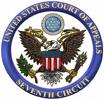Seventh Circuit Criminal Case of the Week: Small Progress on Crack Sentencing

It has been widely recognized for years that federal sentences for the crack version of cocaine are unjustifiably harsh relative to sentences for the powder version. As far back as 1995, the United States Sentencing Commission — a body not generally known for its lenience — called for equalization between crack and powder sentences. However, progress in softening the so-called 100:1 crack-powder disparity has proceeded at a glacial pace. In 2007, the Commission finally succeeded in reducing (but not eliminating) the disparity as it exists in § 2D1.1 of the sentencing guidelines, but statutory disparities will require congressional action to correct. Fortunately, a bipartisan House bill cleared subcommittee last week, and the prospects for legislative reform appear unusually strong this term.
As reformers have argued their case in the Commission and Congress, the 100:1 disparity has collided with the Supreme Court’s reinvigorated Sixth Amendment jurispudence. In light of constitutional concerns, the Court transformed the sentencing guidelines from mandatory to advisory in 2005. Then, in 2007, the Court affirmed what should have been obvious (but had been rejected by the Seventh Circuit and other intermediate courts of appeals): the crack-powder disparity contained in § 2D1.1 is no more binding on sentencing judges than any other aspect of the guidelines.
But the Seventh Circuit remains resistant to the new world of advisory guidelines. The 100:1 ratio still lives on in § 4B1.1, the career offender guideline. And, in United States v. Harris, 536 F.3d 798 (7th Cir. 2008), the Seventh Circuit held that district court judges still may not act to correct or soften the crack-powder disparity when sentencing career offenders. The court reasoned that the disparity in § 4B1.1 was congressionally mandated, while the disparity in § 2D1.1 was not.
Last week, though, the Seventh Circuit limited the reach of Harris in United States v. Knox (Nos. 06-4101, 06-4376 & 07-1813) (Tinder, J.).

 The confirmation hearings for Judge Sonia Sotomayor are over, and the reviews have been overwhelmingly negative. The public tuned in expecting a discussion of the nominee’s qualifications and a debate on the role of the Supreme Court in our constitutional system. What they got, instead, was a battle of metaphors.
The confirmation hearings for Judge Sonia Sotomayor are over, and the reviews have been overwhelmingly negative. The public tuned in expecting a discussion of the nominee’s qualifications and a debate on the role of the Supreme Court in our constitutional system. What they got, instead, was a battle of metaphors. On several occasions recently, the Seventh Circuit has been critical of statements made by prosecutors to jurors. (See, for instance, my posts
On several occasions recently, the Seventh Circuit has been critical of statements made by prosecutors to jurors. (See, for instance, my posts